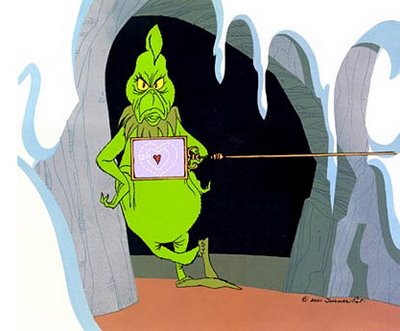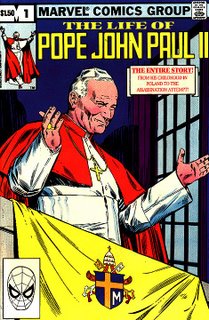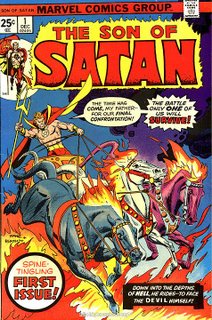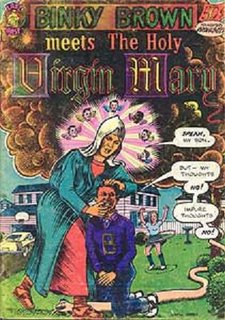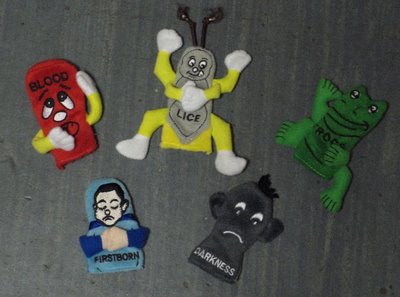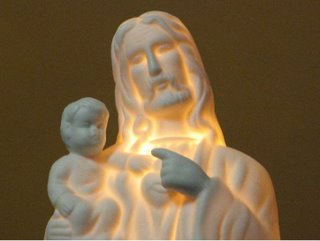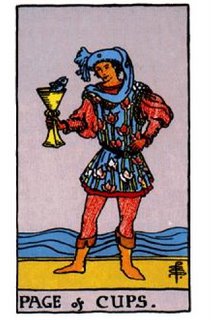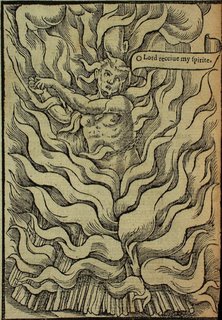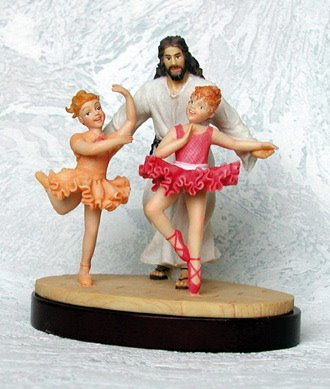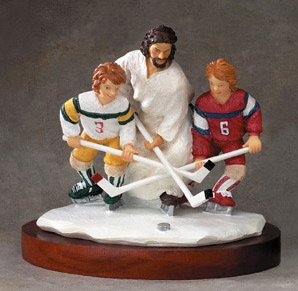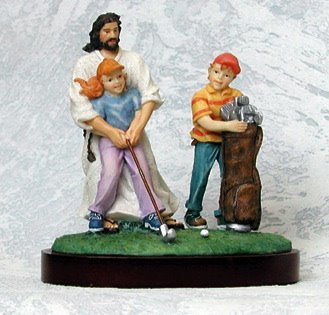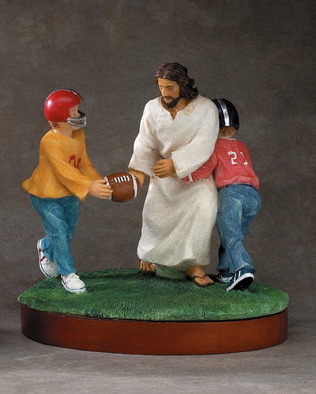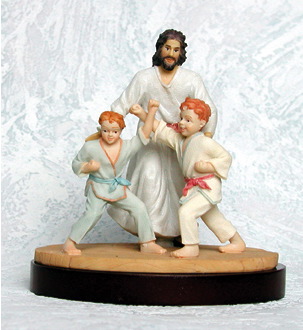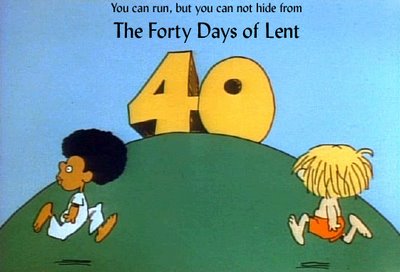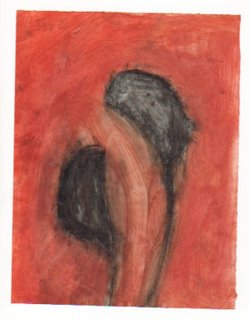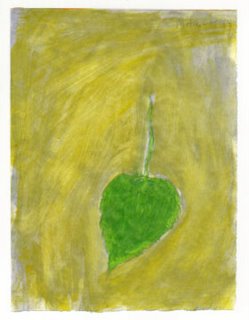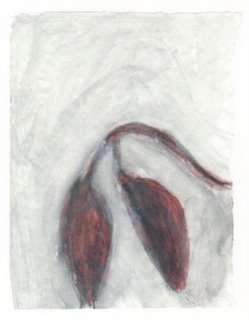Pam Whitelsea(sp?)
No, that's not Pam, my former roommate who smoked so much that whenever I quote her, I feel it necessary to drop my voice an octave and growl. This is a different Pam.Bill's comment from Day Twelve "I feel duty-bound to defend Mormons, who I worked with and hung out with whilst in grad school. Sweet, decent folk, and no more weird than, say, my suburban neighbors" has made me reminisce about my friend Pam, who I knew while in college. Pam was one of those people you knew first by reputation. The fierceness of her mind, the sharpness of her tongue and her intolerance for other people's nonsense made her a little intimidating. One of her roommates, Mary, was feuding with Pam at the time, and would stop in my dorm room to kvetch aplenty.* "You just don't want to get on her bad side" was what I usually heard, but I decided to keep enough distance so as not to get on any side at all.
This worked about as well as most of my plans. Pam and I had a friend in common, Jane-The-Tuba-Player. By the algebra of college friendships (in which people hang out not in twos or threes but actual packs)** there was no avoiding the formidable Pam. It didn't take me long to discover, however, that Pam was delightful. Not as tough as everyone said, but as sharp, funny and direct as they had hinted. She was a little guarded (which fits because she was on color guard) but one of those friends who, if she liked you, would lay waste to half the earth on your behalf. She and her friend Lisa closed out most every party, and if you were lucky*** enough to still be around, they would usually perform their dance to AC\DC's "Big Balls," in which they would pose and move like 18th century fops. Those parties were some of the happiest times of my life.
But happiness isn't contagious. Like many caustic people, Pam was deeply unhappy with her life. My first inkling of this was while at, no surprise, a party. There are those who, while at a party, always make a point of looking in their hosts' bathroom cabinet. Medicine cabinets don't interest me that much, despite having peeked in a few. But I always inspect what books are on their bookshelves and what records they have in their collection. It was while flipping through stacks of records in the bedroom that Pam came in and asked if she could ask me something. "Uh-oh" I thought, because I liked Pam, but I didn't
like Pam, all our flirting aside. However, Pam liked someone else who didn't
like Pam either. This guy liked pot, and that was about it. It didn't take long for her frustration over a boy to turn into "what's wrong with me?" I talked to her as best I could, agreeing that he wasn't worth it (he really wasn't) and before long Lisa came in and helped calm Pam's tears.****
Not too long after that, Pam converted to Mormonism. The news was such a surprise that all her friends shared a common look of blank shock whenever the subject came up. Pam's joining the Church of Latter Day Saints entailed major changes, the biggest being no more drinking. Back in college, nobody quit drinking. There were those who never drank and then there were the rest of us. Pam's friends tried to be supportive while negotiating the new rules regarding her change of life but the results were not always graceful. No-one was ever cruel, just confused. Pam had added something new - a serious belief in religion - and none of us were interested. In the end it was easier for Pam to simply remove herself from the algebra equation that made up "our group."
Like all organisms, a clique has a life cycle.***** Pam becoming a Mormon introduced a gravitas we weren't ready for. Her absence was felt even when we stopped talking about it. We didn't really hang out as a pack anymore, but in groups of twos and threes. When I talked to Pam about Mormonism (even then I was curious about religion) she would say what attracted her was the faith's strong emphasis on family.****** It wasn't long before she was dating someone from the church. None of her friends ever met him. We wondered how a woman as independent as Pam would manage in a religion that states the husband is head of the family. But she seemed happy, or if not "happy" then more at peace.
__________________________________________
*What were the feuds about? Mary had a habit of eating her roommate's food and lying about it.
**One of the things I miss most about college is the sense of the campus as a large village where everyone's job is to take classes and then hang out with each other. I miss having a large pool of people to hang out with in the immediate vicinity.
***"Luck" being a relative term, because if you closed out the party, that means you hadn't picked anyone up. However, Pam and Lisa dancing to AC/DC made a nice consolation prize.
****Lisa was studying to be a nurse. No surprise there.
*****This was something I realized with my group of friends in grad school. I witnessed a clique form, become strong then fragment and break apart within the space of two semesters. The high point of the friendship came, appropriately enough, exactly at the middle point between the two semesters at a party. I was saddened to discover that some people prefer bickering to getting along.
******This conversation with Pam is linked in my mind to one that I had years later with my friend Mick. I had to buy a suit for a wedding and while out on a Sunday morning, I saw large numbers of black people leaving church dressed beautifully. The men wore tailored suits and the women had a style that you associate with people from the 1940's that we have since shrugged off. But it wasn't just the clothes. As I commented to Mick later "I wish I had a community. I wish I was part of some group." Mick said "You know what I wish I had? A family." One of her parents had died and she wasn't really in touch with the other or her brother. At that point I stopped crying over my shoelessness.
